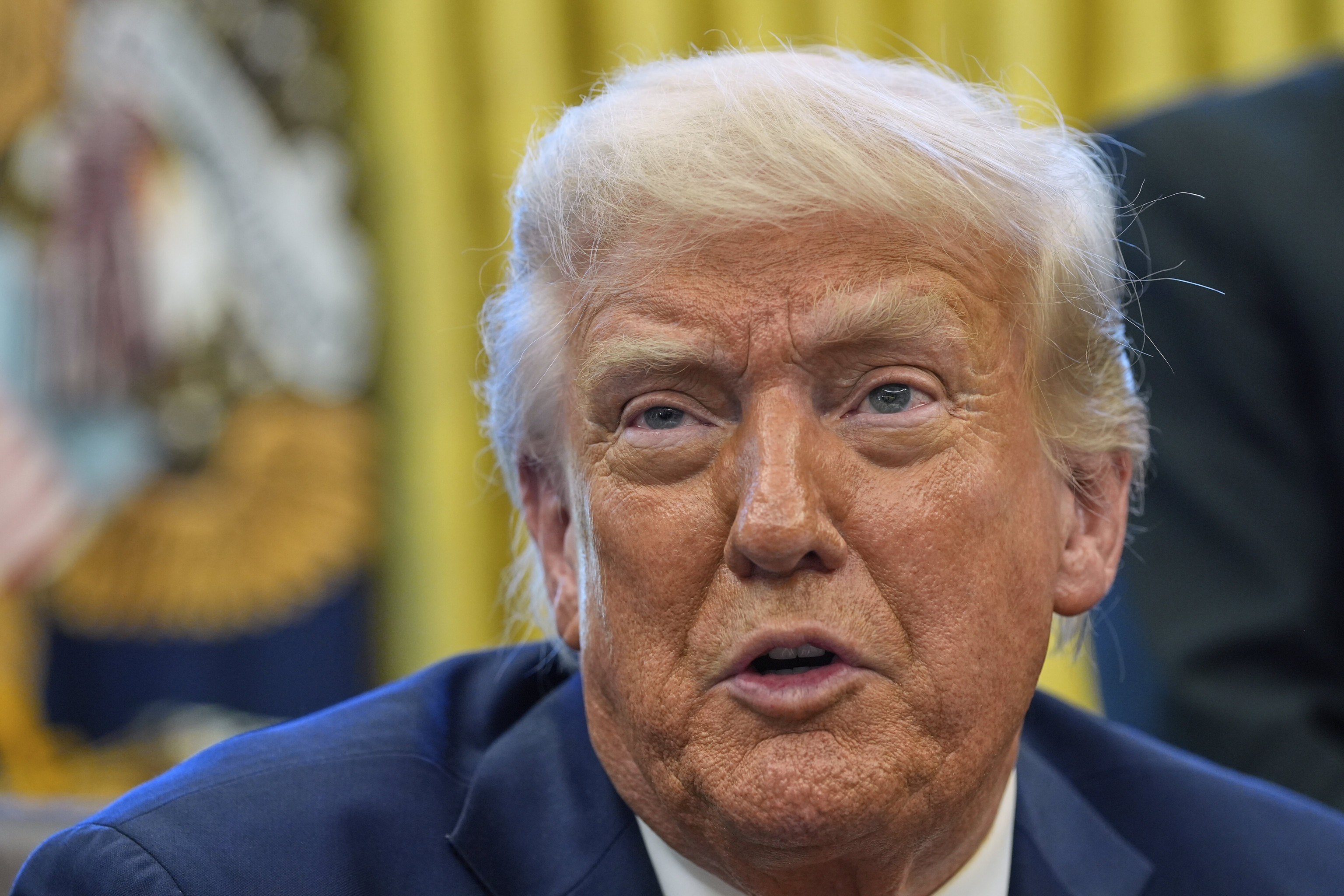The big gurus of American technology are the big losers of the tariff war in stock market terms. Elon Musk, the owner of X, Tesla, or SpaceX, has seen a quarter of his fortune wiped out since Donald Trump's presidency began. And this is despite being a government advisor and a friend of the president until he decided to start the biggest trade war of the last century. In the year, Musk has seen $120 billion of his wealth evaporate, according to data collected by Bloomberg's Billionaires Index. But Musk is not alone in this.
Amazon's founder, Jeff Bezos, and Mark Zuckerberg, behind Meta (Facebook or Instagram), are losing $60 billion in the market due to the drop in their stock prices, which are recovering in recent days thanks to Trump backing down and toning down his rhetoric. Trump's protectionist stance has put the billionaire owners of the big tech companies as the hardest hit in the crisis. Larry Ellison, founder and largest shareholder of Oracle, loses $36.6 billion in the market this year, and Larry Page, co-founder of Alphabet, sees his fortune reduced to only $142 billion after losing over $26.3 billion along the way. This is, by comparison, more than the market value of Telefónica, Cellnex, or Naturgy on the Spanish stock exchange.
And who are the winners of this crisis? There are billionaires who have managed to navigate the current crisis well either because their companies are holding up well, or, and this is commendable, because they have invested very intelligently. And the best at doing this globally is Warren Buffet at 94 years old. The owner of investment holding Berkshire Hathaway climbs to the fourth position in the billionaire ranking thanks to the biggest gains in the entire market. His personal fortune has increased by $23 billion in the year, reaching $165 billion thanks to the appreciation of Berkshire Hathaway in the US stock market (up 17% in 2025) surpassing a trillion in market capitalization for the first time, reaching historic highs.
However, Berkshire Hathaway does not disclose its quarterly movements, so it is unknown how it has acted during the tariff crisis. It is known, however, how the holding was positioned weeks before when it announced a profit of $47.437 billion, a 27% increase. It was with a very substantial cash position. It closed 2024 with a cash reserve of $334.2 billion, which it has almost doubled in a year, evidence that the guru was unsure where to invest after Donald Trump won the November 2024 elections.
Beyond Buffet, other billionaires have increased their bank accounts in the first three months of the Republican presidency. This is the case of Jeff Yas, a classic businessman on Wall Street, who manages to add $14.1 billion to his pocket with a wealth ranking 23rd. Yass is the founder of a legendary trading firm in the American market called Susquehanna International Group, and also has a $20.4 billion stake in ByteDance, TikTok's parent company.
Two spots down is precisely Zhang Yiming, co-founder of the company behind TikTok, a Chinese-origin video platform with 1 billion users. The Trump Administration intended to ban its use in the US last January unless it was sold to an American company. It granted a 90-day grace period to try to resolve the situation. There were talks of Elon Musk's interest in acquiring the app, but he himself denied these rumors. Yiming, with a fortune valued at $57.5 billion, is the third person who has enriched himself the most in this crisis by increasing his personal wealth by another $13.6 billion since January 1.
Another compatriot, Lei Jun, CEO of the tech company Xiaomi, has managed to increase his fortune by $6.7 billion in this eventful 2025. He ranks 41st in the ranking with $36.3 billion in the bank.
And if you're wondering where the richest Spaniard is, Amancio Ortega, he remains in 14th place among his billionaire colleagues with a $105 billion personal wealth thanks to holding half of the shares of Inditex and another $7.9 billion valued by Bloomberg in his real estate investment company Pontegadea.
